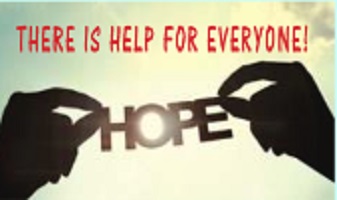by Mary Jean Teachman
Author: Never Saying Goodbye
Suicide and drug abuse is an epidemic today. I know that sounds scary, but it is the truth. 
I know the pain that is involved when a loved one takes his or her life. My son, Arthur Forrest Tull, left this planet by committing suicide. I didn’t think I would ever recover. The following days were dark, dismal, sad, and full of remorse. I couldn’t go on. I thought it was my fault and that I could have prevented it. The truth is, I could not have prevented it and it was not my fault. But the guilt hung around like a dark cloud. His loss was almost too much to bear.
It took time for me to realize why Forrest did it. He left a suicide note to explain that he loved all of us and hoped we would understand that he was in too much pain to stay here. It was so hard for me to accept that, but I knew that I had to. I slowly healed by taking a new path: helping others facing the same situation. It was important for me to help prevent another family member or friend from going through the loss of a loved one by suicide. I joined MIRA, a mental health organization, and concentrated on finding ways to help people who had lost loved ones to suicide and drug addictions.
Here’s what I want to share with you if you’re tempted by the thought of suicide: You don’t have to be a victim of your thoughts. GET HELP!!!
Talk to a doctor or someone you trust if you are feeling depressed, crying a lot, feeling as if you are not worth anything, that no one loves you, or that your life isn’t worth living. You can quit being afraid and stop feeling different. It’s not as scary when you find out there is help — help for everyone.
Think of suicide as a brain disease. The good news is these problems are treatable. If you had diabetes or pneumonia, you would get help. In the same way, you can get help for the brain. It is important to know that because many people who suffer from brain diseases like depression, bipolar disorder, mood disorder, phobias, panic attacks, anxiety disorder, and not being able to cope with life’s ordinary demands and routines may not realize that.
It is very important to get help because these diseases, when left untreated, can lead to suicide. People are hurting so much that they feel as if they cannot live anymore. But they can live, and live well with help.
 Maybe you feel shame because of your messed-up emotions. That may be just because of embarrassment. Please don’t think that way. Get help! Many people are living today who didn’t commit suicide because they asked for help. That is the best thing that anyone can do — get help. Join the overcomers!
Maybe you feel shame because of your messed-up emotions. That may be just because of embarrassment. Please don’t think that way. Get help! Many people are living today who didn’t commit suicide because they asked for help. That is the best thing that anyone can do — get help. Join the overcomers!
Remember, suicide affects many lives, not just the person who commits it. All of their loved ones and families are so sad because their sister, brother, child, mother, father, husband, wife, or friend left them. They are in sadness for so long — in fact, for the rest of their lives. Take it from a mother who lost her son: I miss him every day. Please don’t do that to the people you love. Be brave and get help. You are loved, even if for the moment you think you aren’t. You truly are.
KEEP THESE HELP RESOURCES:
You can call this helpline 24 hours a day: Suicide Prevention Lifeline,1-800-273-8255, www.spsamerica.org
For help, mentoring, or bracelet: www.umtr2me.org
Crisis Text Line: Text HOME to 741741 if you find yourself suicidal.
There Is Help for Everyone!







